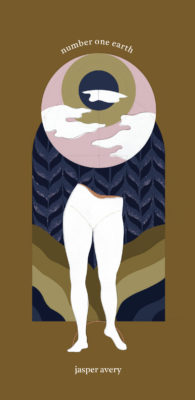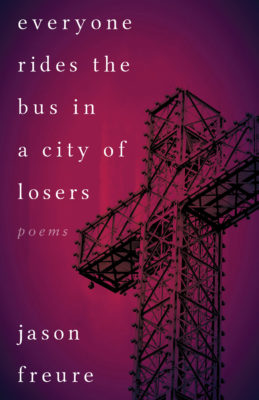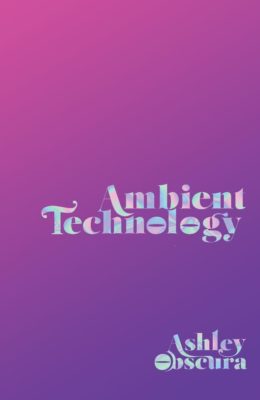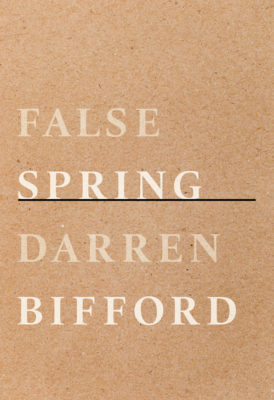jasper avery’s number one earth is a poetic game of cosmic Tetris. Shattered fragments from a youth, a landscape, and a sensibility keep littering down and have to be stacked, accounted for, and ordered by the reader. The fragments arrive fast and furious, in motif, in anaphora (the repetition of the opening word or phrase across subsequent lines), or in incantatory repetition.
At the start, the speaker insists that:
this is my last day on earth
but don’t worry
i will be back on monday
i go to my other earth on the weekends…

number one earth
jasper avery
Metatron Press
$16.00
paper
96pp
9781988355122
The voice is so winning and so surefooted that it never approaches the twee or false. There are fragments of scenes and possible places, an apartment in Boulder, Colorado, a trailer, a landscape near the Arkansas River. There are fragmented family anecdotes, my favourite of which is the Christmas gift of a Bible with the words “good luck” written on the cover. The book becomes a supersaturated solution and just about dead centre, in the poem “#88 earth,” precipitates its primal scene:
you fill the water bottle
you found in the trash
with pondwater in the field
at recess
because it has been raining
and you like thiswater is full
of mosquito larvae and water fleas
and you like thisthey squirm around
water fleas swim the most beautiful
and you like thisyou show your dad
your dad shows school administration
school administration
orders insecticides be sprayed
into the pond
you do not like thisall you wanted was small pond
of bottle full of magic
The book is shaped to ever increase in complexity of vocabulary, of logic, and of self-consciousness until it collapses on itself in the final poem, “the hole.” jasper avery has achieved a magnificent debut, one that knows its own limits and asks for our patience with the impasse that is being a person with the impossible capacity to create an imagined world within the confines of a real one. The book ends with a promise:
i could be wrong
and with the final sigh of hand
i resort to thinking that
this sinking ship may
even be of a future ship
and so here i am
standing in front of you
and your future or present ship
not sure what to say.i don’t know what to tell you
i just don’ti am sorry about the ship
i can find you a new one.
After this collection and the hope and verve it engenders, I’m hoping she’ll make good on her promise. In number one earth, the author invites the reader to a project of self-making with the generous epigraphic first and last words: “i hope this helps.” It has the quirk, verve, and immediacy of the most gripping spoken word poetry without limiting the thought unit to the audience’s aural memory.
***
Jason Freure, in his debut collection Everyone Rides the Bus in a City of Losers, wants to be the Baudelaire of Montreal, flaneuring his way through a series of site-specific poems about the city. The book includes, for example, a poem for every stop on the metro. Freure reports on the twenty-something hipsterish scene and its spiritual and pecuniary troubles in a tone of debauched, gritty realism and bemused bystandership.

Everyone Rides the Bus in a City of Losers
Jason Freure
ECW Press
$18.95
paper
104pp
9781770414532
She only wants to serve those businessmen at lunch
who drink too much wine for one hour
and like how fast the place serves brochettes on rice.
They don’t seem to really care where they are.
They don’t expect anything to be fun, or romantic or edible.
Here is a glimpse of a poet one would like to hear more from. But, in general, this book trips over its own conceit too often to follow it very far afield.
***
In her second poetry collection, Ambient Technology, Ashley Obscura plays the scales of love and loss in the key of now. The lyrics are mostly short blurts that convey one intensely felt emotion or that are massaged into rhapsodic rumination by anaphora. That is to say, each poem has the general shape and pace of the long jump.

Ambient Technology
Ashley Obscura
Metatron Press
$18.95
paper
156pp
9781988355115
I want you to
One gesture at a time
Build us a safer world
Even if love is a battlefield Even if we’re not yet
The people we have dreamed
Sometimes Obscura’s honesty sounds more like honesty than it does like poetry, but the energy of the book will sate fans of the supercharged, super-contemporary confessional.
***
Darren Bifford’s False Spring is a very strong sophomore effort by an increasingly confident poet. His rewriting of Rilke’s masterpiece “Archaic Torso of Apollo” is a tour de force. There are many different translations of the poem, and at first, though Bifford has truncated the title to “Archaic Torso,” it appears to be a new translation. It starts and ends similarly to Rilke’s poem – the beginning is a description of what’s missing from the torso and the end is a command to the poet himself, issued from the missing part. Bifford wields this similarity to unexpected, breathtaking effect: instead of a statue that has lost its head to time and accident, Bifford’s torso is a decapitated corpse. His interest in catastrophe and violence saturates the original.

False Spring
Darren Bifford
Brick Books
$20.00
paper
68pp
9781771314763






0 Comments